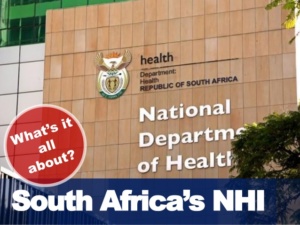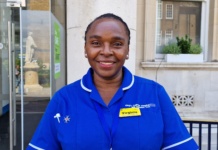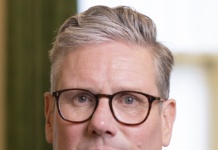Many private hospitals will be opening their doors to more patients but does that mean you’ll be stuck at the back of the queue?

The United Kingdom’s universal healthcare system, known as the National Health Service (NHS), had a problem: By the early 2000s, a growing number of elderly patients were waiting up to three years for sight-saving cataract services in the early 2000s.
But the government-funded healthcare scheme didn’t have enough beds. It did, however, have plenty of parking.
“All we needed was a parking lot and a connection to three-phase electricity,” remembers South Africa’s Netcare CEO Richard Friedland.
Netcare entered the UK market fifteen years ago. It operates more than 50 private hospitals in the country, but 43% of its patients come from the NHS through the service’s electronic “choose and book” appointment system: Patients elect where to go for care, and the NHS pays private providers like Netcare a nationally-set rate for service.
Through co-operating with the NHS, Netcare helped to drastically shorten the cataract waiting lists. To do this, Netcare flatbed trucks travelled UK highways carrying a kitted out trailer for cataract operations. Two trailers each were dedicated to operating theatres, pre-operating wards and examination rooms. Netcare offloaded these trucks into 30 NHS parking lots around the UK where they became mobile cataract clinics as part of an NHS tender.
As the lorries cruised around six days a week and 50 weeks each year, pensioners tracked their progress online, mapping out when the trailers would be in their area and booking appointments.
Ultimately, Netcare’s cataract caravans had performed more than 40 000 surgeries over [five years. Patients were sent home the same day, and many had spent just 10 minutes under the knife as surgeons slashed operating time, says Friedland, who was speaking at this week’s South African Hospital Association (Hasa) conference in Cape Town.
“Eventually the doctors were doing 20 to 24 surgeries per day in these theatres, and they were finishing at lunchtime and going home,” testified Netcare’s director of strategy and healthcare policy Melanie Da Costa before the Competition Commission Health Market Inquiry in 2016.
The UK’s past could be South Africa’s future. In June, the health department released South Africa’s National Health Insurance (NHI) white paper. The document will guide the country’s move to universal healthcare coverage – giving everyone in the country access to the same health services, regardless of their income.
Under the NHI, the government will use public hospitals and clinics to provide healthcare, in addition to buying services from accredited, private providers for standard rates – much like the UK’s NHS. By doing this, the NHI will become the largest buyer of healthcare services in the country.
But the practicalities of this are still developing, and the heads of private hospital and insurance groups like Netcare and Discovery are already thinking about what private healthcare might look like in a post-NHI world – and how they may have to change to be a part of it.
The private sector could start by following Netcare’s lead in the UK, tackling waiting lists for cataracts or hip and knee surgeries, especially in rural areas, says Mediclinic Southern Africa CEO Koert Pretorius. He says a percentage of these procedures could be done at below cost prices if private hospitals could get medicines and even prosthetic limbs procured at state tender prices.
Can SA afford the NHI? And will you be able to keep seeing your doctor? Our Laura Lopez Gonzalez answers these and other questions.
Preliminary Hasa research shows that South Africa has about 525 private hospitals and most of these are independently run or, in other words, are not part of large groups. Pretorius says these facilities could help manage nearby clinics and even school health programmes under the NHI.
The country has screened more than 3.5-million learners since health minister Aaron Motsoaledi resuscitated school health programmes in 2014. One in three children were found to have at least one condition relating to their eyesight, hearing or teeth, the minister has said.
But NHI special advisor to the national health department Vishal Brijlal admits no one knows how many of these children ever received care.
Discovery CEO Jonathan Health CEO says this is a gap private medical aid administrators could help to mend.
He explains: “[The NHI] seeks to purchase services from a wide range of providers … that’s about procurement, about understanding cost-effectiveness and the cost and quality of services, analyzing data and purchasing effectively.
“I’m not exaggerating when I say that the medical aid scheme administrators of this country stand out in the world for their skills, systems, data analysis capacity and their health economics capabilities. You talk today about the need to urgently look at the school health programme… I can say to you within weeks, or a couple of months at most, the private funding and delivery side could arrange those services.”
But he says a lack of trust between the public and private health sectors has stalled collaborations and both parties are to blame.
“If we had a government that was willing to say let’s do 20 000 cataracts over the next [number] of months, that could be up and running in a few months. If that trust deficit could be bridged, we could benefit real people.”
Trust isn’t the only thing that will have to change under the NHI.
In 2012, Netcare tried to recreate its success in the UK with mobile cataract services in the field of breast cancer with a mobile mammography unit in the Free State. Four years later, not a single patient had stepped through the van’s doors – a fact Da Costa blamed on inflexible regulations.
“We had written at least eight letters to the health professions council before we got a response and we have just had multiple, multiple requests for data, presentations, etc. To cut a long story short, we have now donated this trailer to the provincial department of health,” she told the Competition Commission in 2016.
Eleven pieces of legislation will have to be amended as the country introduces the NHI. Medical aids and private providers are also likely to see more regulation, which could help stem some fears about the universal health scheme.
Like South Africa, the right to health is enshrined in Brazil’s Constitution. Although the country has its version of an NHS, private medical aids still exist. Medical schemes are however subject to rules such as maximum waiting periods for doctors’ visits, exams and some forms of treatment for instance.
Denise Soares dos Santos is the CEO of Brazil’s Beneficência Portuguesa de São Paulo – a non-profit hospital that towers above one of Brazil’s most populous cities, São Paulo. Her hospital sees a mix of private and public patients. Dos Santos says maintaining a profitable mix has meant changing everything from what to offer, how they charge for it and how they talk about it.
Dos Santos’ hospital is contracted by the city to care for public patients. But that doesn’t mean the hospital provides all health to public patients.
She explains: “You have to provide what you do better. Our competency is in highly complex [illnesses] – cardiologists, neurologists, oncologists and orthopaedics. Other… hospitals wanted to do everything to everyone, and it’s not possible.
“We focus on what we do best, and as you are able to get [more patients in these areas], you achieve economies of scale. Then we are able to buy better from suppliers.”
The hospital is also increasingly shifting to “bundled billing”, or situations in which patients are billed for group of related services needed to treat one illness with the aim of, for example, reducing costs and promoting cooperation among medical teams.
Brazil’s national public health service already uses this simplified billing system – a method that might be catching on in South Africa where many providers still bill for each service separately.
Recently, Dos Santos’ hospital changed its 158-year-old logo, a blue old-fashioned cross paired with grey lettering, for a new abbreviation “BP” in dramatic red and purple. It followed market research that showed a dearth of competitors with branding in a similar hue. It’s one of the ways that BP is changing the way it speaks about itself and who it speaks to: to both private and public clients. Public patients now make up 60% of its business.
BP is also introducing sub-brands so that it can specially tailor messaging and education to an increasingly diverse patient pool.
People, she says, want quality health care but they also want care that can speak to them whether they are on medical aid or not.
Kindly follow us on twitter:@AfricanVoice2












